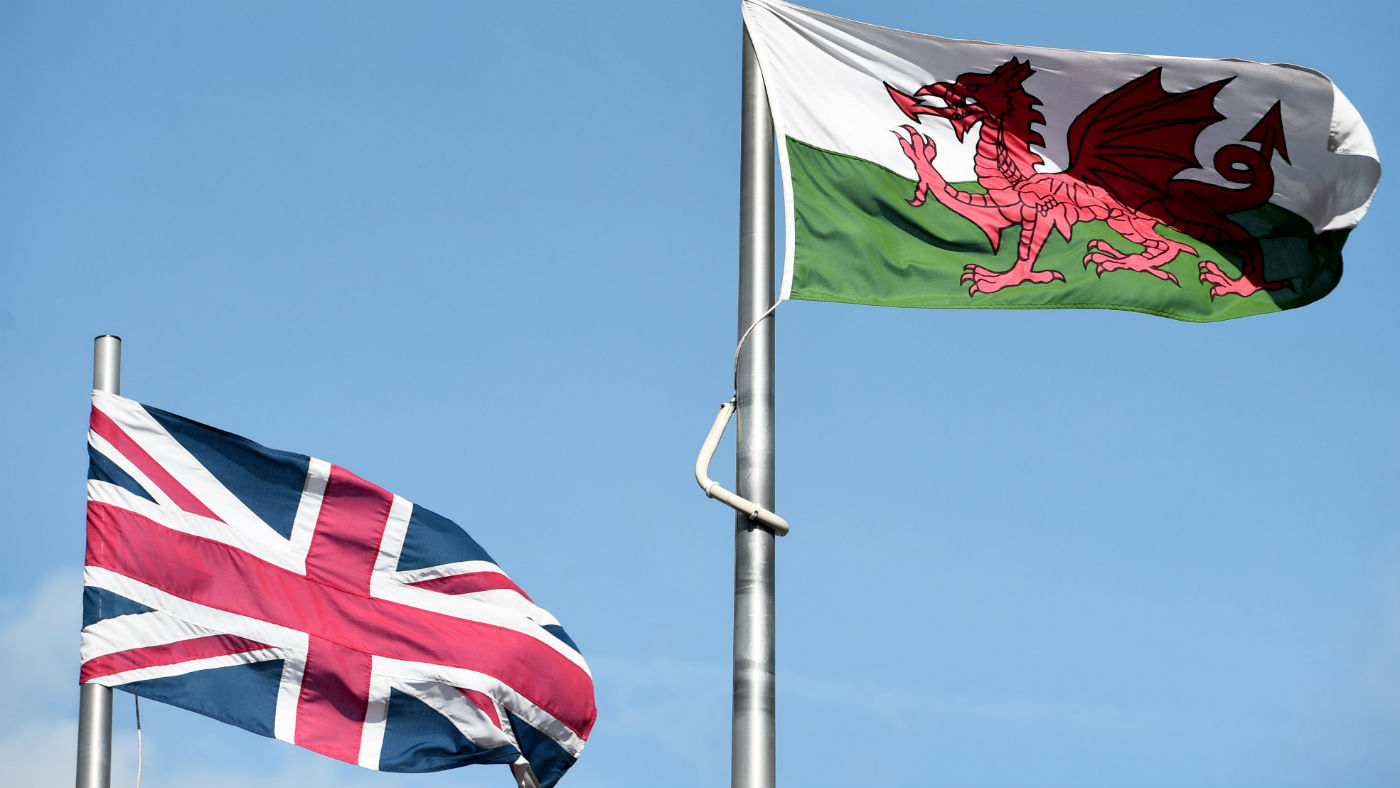Could Wales go independent?
Former first minister Carwyn Jones says Westminster ‘shambles’ is driving curiosity in Welsh independence

A free daily email with the biggest news stories of the day – and the best features from TheWeek.com
You are now subscribed
Your newsletter sign-up was successful
Former Welsh first minister Carwyn Jones has said the ongoing “shambles” in Westminster is driving curiosity in Welsh independence, in a further sign Brexit could lead to the complete break-up of the union.
Much attention has been focused on a second Scottish independence referendum and even a vote on Irish unification, yet the clamour for a complete break between Wales and England has so far been limited to fringe groups.
Wales Online’s chief reporter Martin Shipman said “many centuries of colonisation – both physical and mental – have resulted in a nation where most people have become estranged from the natural desire to govern themselves”.
The Week
Escape your echo chamber. Get the facts behind the news, plus analysis from multiple perspectives.

Sign up for The Week's Free Newsletters
From our morning news briefing to a weekly Good News Newsletter, get the best of The Week delivered directly to your inbox.
From our morning news briefing to a weekly Good News Newsletter, get the best of The Week delivered directly to your inbox.
While Cardiff has had its own devolved assembly for 20 years, Wales and England continue to enjoy a much closer legal and legislative relationship than other UK nations. Unlike Scotland and Northern Ireland, Wales also voted to leave the European Union.
Yet anger at Westminster infighting and years of under-investment is beginning to strain the once solid relationship.
In May this year, thousands of people attended an independence march in Cardiff, which organisers claimed was the first ever of its kind.
Llywelyn ap Gwilym, a spokesperson for march organiser All Under One Banner, told WalesOnline: “The debate around Wales’s constitutional future has intensified since the vote for the UK to leave the European Union. Several groups believe that Wales and its people would have a better future as an independent nation outside the UK... There is an increasing realisation that independence is normal.”
A free daily email with the biggest news stories of the day – and the best features from TheWeek.com
The leader of the nationalist Plaid Cymru party, Adam Price, wrote in HuffPost UK that decades of neglect from the UK government has resulted in poverty in Wales which, coupled with the Brexit chaos, was enough to show that Westminster was “not fit” to govern or represent Wales.
He cited the emergence of various grassroots organisations including Yes Cymru, Undod, All Under One Banner (AUOB) and Welsh Football Fans for Independence as a sign that attitudes towards Welsh independence is changing.
“For many years, our desire to see an independent Wales has seemed distant. But the tide is turning, the marches are growing, and the voices are louder,” he said.
In a landmark vote last month, Machynlleth Town Council in Powys became the first to formally back Wales becoming an independent country. A similar proposal in favour of independence put forward by Porthmadog Town Councillor Simon Brooks was backed by a majority of town councillors last week.
Describing the decision as “historic”, the Borth-y-Gest Plaid Cymru councillor said: “I think it’s great. We’re the democratically elected voice of our communities, and it just shows how mainstream the idea of Welsh independence has become.”
Wales Online’s political editor Ruth Mosalski reports that “polls suggest support for the idea is growing progressively as Brexit sees the UK turn in on itself and the tone of political debate becomes ever so toxic”.
A survey by ITV Wales held in May showed support for self-government at 12%, up from 7% in a separate poll conducted in March - but still way short of the groundswell of support needed to trigger calls for a referendum.
Jones touched on the main argument against independence - that Wales will be worse off economically – when he said: “I don’t see what advantages independence would give us if I'm honest. We’d have less money and we couldn’t make that up in the short term. Ireland took many many years to do that.”
“The claim that Wales could not afford to function as an independent state is deeply embedded,” says Shipman.
Three years ago Cardiff University’s Wales Governance Centre published a report showing that an independent Wales would have a budget deficit of £15bn.
Shipman says: “the amount of tax raised within Wales would be enough to pay for the Welsh Government’s responsibilities – including the NHS, education and other local government services – but not enough to pay for the welfare budget, including pensions and other benefits, and a share of other UK-wide spending like defence and the justice system, for example”.
Nevertheless, Carwyn Jones’ admission that his opposition to Welsh independence is practical rather than emotional “marks a significant shift in his position”, says BBC Welsh Affairs Editor Vaughan Roderick.
“The former first minister hasn’t become an overnight convert to nationalism though [but] clearly feels a need to spell out the difficulties any move towards an independent Wales would face,” he writes.
“Welsh independence remains a minority view, but the fact that its momentum is growing is undeniable,” says Mosalski.
“Whether it is the destruction of a wall in Ceredigion, better publicity on social media, or even 20 years of devolution, supporters say for the first time, conversations about Welsh independence aren’t met with laughter or scorn, but genuine curiosity”.